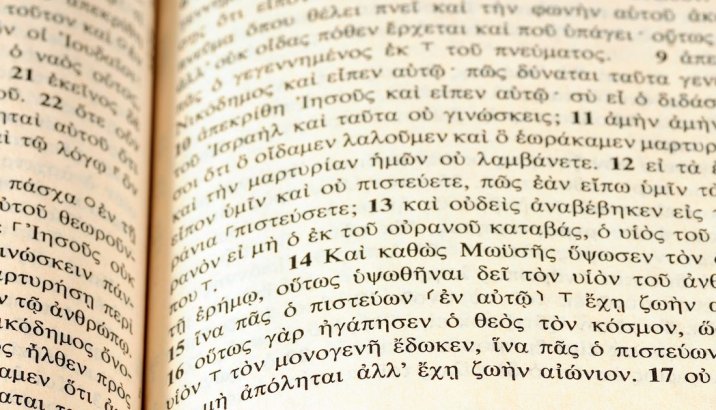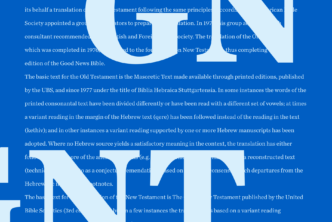This may come as a surprise to some, but it’s possible to finish a seminary MA and a PhD in theology and not learn Greek, and I am living proof of this.
My programs of study were specialized enough that the need never arose (and it was never required). But now that my schooling is over and I want to continue learning, I decided that the time to learn Greek has come.
So, of course, I looked to Logos first.
Why Logos? For a few reasons:
- Logos has become my go-to tool for biblical and theological study. When I hear of interesting books or want to begin a new research project, I open Logos without a second thought (and, I promise, it’s not just because I work here). Primarily this is because of how easy it is to move about my library and document my insights.
- The resources I selected are immediately available. There’s no waiting for physical materials to arrive, so there was no opportunity to second guess my commitment to this process. I could simply jump right in.
- And finally, I went to Logos first out of a commitment to caring for the planet. I prefer digital materials because they have a much smaller carbon footprint than physical materials (which I won’t get into here since that would be a sizeable tangent).
My preferred resources to learn Greek
My first stop was with the Mobile Ed Courses, where I picked up the Biblical Greek Foundational Certificate Program. This, paired with my Logos base package and supplemented by Biblical Greek Made Simple, are where I started.
To my surprise, the certificate program offered two different pronunciation methods for its Greek alphabet course. The fact that I was unaware of the competing pronunciation schemes just showcases how new I was to biblical Greek.
For good measure, I went through both alphabet courses, which ended up being quite helpful since the GK101 course uses Koine pronunciation, but Biblical Greek Made Simple uses Erasmian. I think I would have been at something of a loss if I had picked one and ignored the other. I can see the benefits of learning both systems, so I’ll just let the experts explain which one they prefer.
And let me just say, John Schwandt is great and so is the Greek Alphabet Course (which is bundled into the certificate program I selected). It’s amazing how much confidence I gained simply from learning the letters and their sounds. I still have no clue what most of the words mean, but I can sound them out and pronounce them correctly, mirroring, in many ways, my six-year-old as he is learning how to read simple English. He doesn’t understand what some words mean, but he can piece together how to pronounce them.
It’s humbling to feel like a child again, but this is simply because it’s a new language with some new sounds, and not because of how the materials are presented. Both Schwandt and Zacharias (author of Biblical Greek Made Simple) have worked hard to help newbies along, and have invited us to dive head-first into this new experience. I’m sure that as I continue to work through these materials slowly and consistently my comfort with the language will grow and my ability to use it will too, just like my son’s will with English.
Already know Greek?
I’m confident that these resources will benefit those who need to refresh their Greek as well. Schwandt’s course is broken up into bite-sized sections that are easy to navigate, so you can quickly find particular topics that you want to brush up on. And Zacharias’ book features a “Second Time Around” section at the end of each chapter, which will help those who already know Greek to dig in a little deeper.
So, if you’re considering learning biblical Greek on your own, or if you want to refresh the skills you worked so hard to develop, consider using Logos to do it. I’m only at the beginning of what will prove to be a long process, but so far I couldn’t be happier. I’ll report back in a later post about my progress and my experience with learning this ancient and valuable language.





